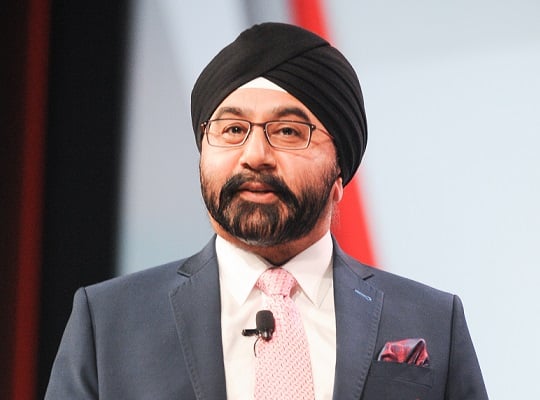UK-based advisor Bhupinder Anand explains why Canada should learn from his country’s example and keep commissions for advisors intact

Whether Canadian regulators should ban commissions for financial advisors is a frequent source of debate across the industry. Many advisors here have moved their businesses to a strictly fee-based model already, and the noises emanating from regulators over the past year certainly suggest trailer fees could be on the way out.
The UK and Australia have already moved in that direction, but according to award-winning advisor Bhupinder Anand, founder of London-based Anand Associates, Canada would do well to think long and hard before banning commissions outright.
In 2013, the UK’s Financial Conduct Authority introduced the Retail Distribution Review [RDR], which it hoped would improve service levels and promote greater transparency among financial advisors. RDR had a number of provisions, including new education and training requirements, but the most significant, and contested, was the requirement that all financial advisors would move to a fee-based model. Anand is one of many critics of RDR and its impact on the industry across the Atlantic.
“They implemented these changes, and advisors who were older and didn’t want to sit through the extra qualifications left the profession,” he says. “That raised the average age literally overnight. It also affected how advisors engage with their clients. The immediate impact was a real dip in new business because advisors were so busy educating existing clients on what this new world was about.”
The new world in this case was one with a lot fewer advisors. Numbers had been gradually falling for years in the UK, but in the wake of RDR, the impact was immediate.
“We used to have 300,000 financial advisors servicing the population of the UK,” Anand says. “The population [of the UK] has risen, but now we have 22,000 [advisors]. There was a dramatic decline in the ’80s and early ’90s, but after RDR, we went from 30,000 to 22,000. The banks sacked thousands during that period.”
Job losses have been mounting in Canada also, and that’s without a ban on commissions. The rise of robo-advisors and ETFs has meant that many of the larger firms – and the banks in particular – have been reducing their advisor networks substantially. In Anand’s opinion, forcing the industry to go exclusively fee-based would accelerate that exodus.
“It’s worrying,” he says, “and the lesson to learn is that just because the UK implements regulatory change first, that doesn’t mean we are ahead of the world in a better way – it just means we are ahead. It is the same in Australia – they have suffered the same problems.”
Aside from his day job as managing director of his own advisory firm, Anand travels the globe as a motivational speaker and trainer. The basics of what makes a good financial planner, he says, are the same wherever you go.
“Ultimately it’s a core understanding of guiding a person to think about their own future,” he says. “Ask them questions that might disturb their thinking: the classic ‘What if this happened?’ – if you died, had an illness, wanted to retire early. These questions are irrespective of language, culture, country – they are questions that every human being faces, but won’t face themselves.”
One thing financial advisors must consider when crossing borders is the fact that regulatory systems can be quite different from country to country. As someone who clocks a substantial number of air miles each year, Anand has observed these discrepancies firsthand.
“Regulation is very different – in the Far East and the Middle East, you practically have zero,” he says. “Even they are realizing you can’t carry on that way. Singapore is pretty ahead in what it is doing – their regulator was talking about getting rid of commissions soon after RDR. To their credit, they didn’t implement it.”
When it comes to how investors pay for financial guidance, Anand is adamant that commissions have their place, particularly when it comes to the mass market. Canada’s regulators need to take this on board, he believes, or an industry that is already shrinking will really start to suffer.



